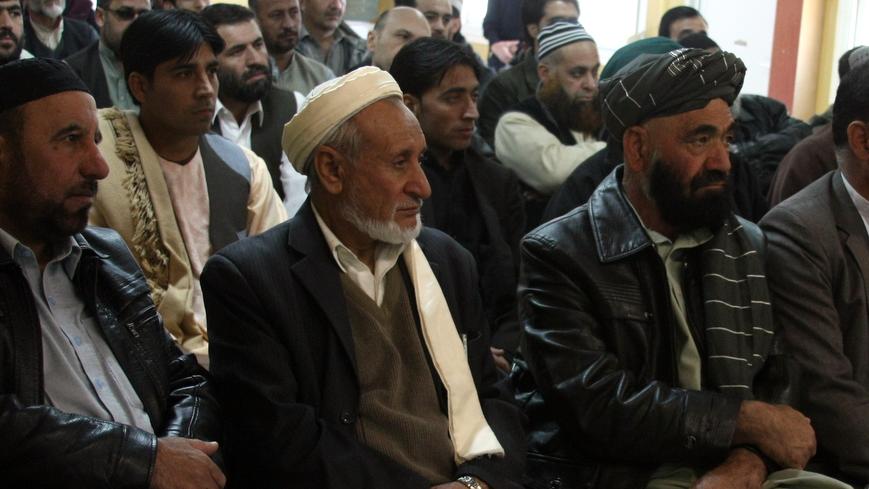KANDAHAR - Civil society organizations and provincial anti-graft officials met at a UNAMA-backed event to form a new Anti-Corruption Group to tackle corruption in Afghanistan’s southern province of Kandahar.
Some three dozen representatives from local government and civil society organizations, including two women, came together at a meeting facilitated by UNAMA’s Kandahar office to elect members to the new Anti-Corruption Group, which follows other similar groups formed in Balkh and Herat.
The newly formed group is set up to identify cases of corruption and report them to the central Monitoring and Evaluation Committee (MEC) in Kabul for follow up and proper actions.
MEC is Afghanistan’s anti-graft body. It was created by presidential decree and later officially endorsed by the Independent Directorate for Local Governance. At the central level, it is made up of three senior anti-corruption experts appointed by government recommendation and three others appointed on the recommendation of the United Nations, on behalf of the international community.
The Committee is mandated to develop anti-corruption recommendations and benchmarks; monitor and evaluate the government and international community efforts to fight corruption; and to report to the President, Parliament, people and international community. It releases reports of its assessments and findings every six months.
A MEC member, Abdul Habib Bahar, said that while the level of corruption has increased, MEC has identified 400 cases of and reported them to Afghan parliament. “Around 60 percent of these cases have already been addressed and forwarded to the relevant justice departments for further process,” he added.
According to national and international reports, corruption in Afghanistan has impeded development efforts. According to Transparency International’s 2015 Corruption Perception Index, Afghanistan continues to be ranked at the very bottom. The index ranks countries and territories on the basis of how corrupt their public sector is perceived to be.
In the recent Index, Afghanistan ranked 166 on the list, with the Democratic People's Republic of Korea and Somalia ranking in the two bottom spots.
UNAMA is mandated to support the Afghan Government and relevant international and local non-governmental organizations to assist in the full implementation of the fundamental freedoms and human rights provisions of the Afghan Constitution and international treaties to which Afghanistan is a State party, in particular those regarding the full enjoyment by women of their human rights.






